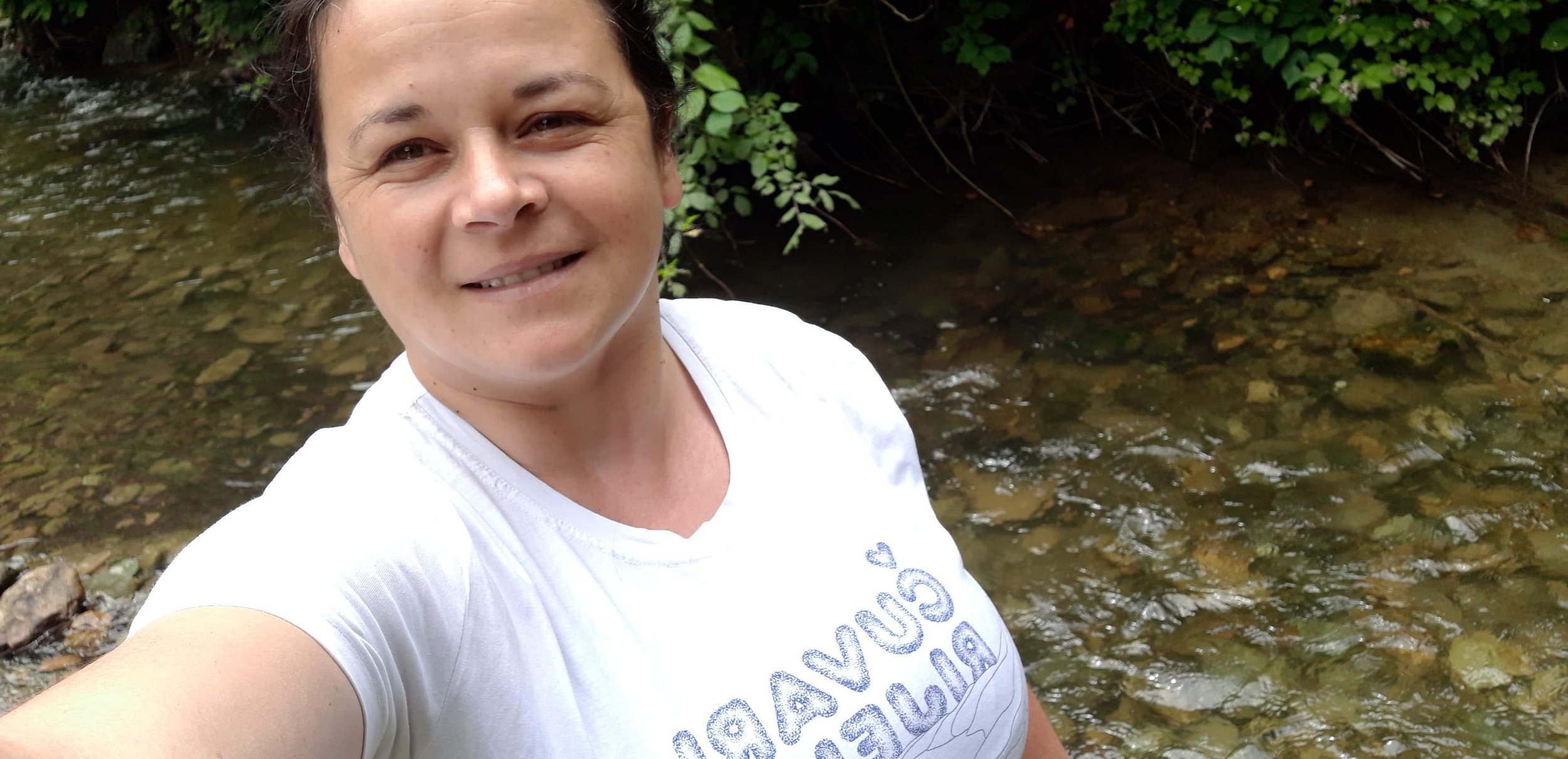Bosnia and Herzegovina
My subject for Bosnia and Herzegovina is Maida Bilal, environmental activist, river guardian and Goldman Environmental Prize winner
Geography
Bosnia and Herzegovina is a country at the crossroads of south and southeast Europe, located in the Balkans. Bosnia and Herzegovina borders Serbia to the east, Montenegro to the southeast, and Croatia to the north and southwest. It is not entirely landlocked; in the south it has a narrow coast on the Adriatic Sea within the Mediterranean, which is about 20 kilometres (12 miles) long. Bosnia, which is the inland region of the country, has a moderate continental climate with hot summers and cold, snowy winters. In the central and eastern regions of the country, the geography is mountainous, in the northwest it is moderately hilly, and in the northeast it is predominantly flat. Herzegovina, which is the smaller, southern region of the country, has a Mediterranean climate and is mostly mountainous.
Source Wikipedia
Environmental issues
The primary environmental concerns in Bosnia and Herzegovina are air pollution, limited water and waste management capacities and uncontrolled construction

About Maida
A positive outcome of the war in Yugoslavia was that the Western Balkans contain some of the most untouched wilderness in Europe. The Balkans are home to the last free-flowing rivers in Europe. However, recent years have given rise to a dam boom in the region, with 436 mini-hydropower projects built, planned, or under construction across Bosnia and Herzegovina
In 2017 heavy machinery approached Maida’s village with a plan to tear down the landscape and build hydroelectric power plants on her local River, the Kruščica
150 Women from the local villages were rapidly organised to physically block the machinery from approaching the river by standing in front of the machines on a bridge in a protest that lasted for 503 days round the clock through bitter Bosnian winters. Maida coordinated the movement called Eko Bistro, (the Civic Initiative for Protection of Kruščica ), driven by her love for the river. Two months in to the protest the group were attacked and beaten by a special police unit charged with clearing the bridge. The group remained peaceful and the assaults only galvanized their determination and raised general awareness of their protest which ended with the cancellation of the dam building permits.
What began as an impromptu attempt to protect the Kruščica River evolved into a powerful symbol of peaceful resistance and it was for these reasons that in 2021, Maida was awarded the Goldman Environmental Prize




The full video showing the painting processa dn telling Maida’s story can be accessed by clicking on the link belwo


